WARNING: REVIEW CONTAINS SOME SPOILERS.
Following on from two solid episodes, ‘The Sword in the Darkness’ is a two hour gripping showcase that finally draws the introductory segments to a close, making way for the real meat of the series to come forward. Perfectly building on top of the foundations, situations go from bad to worse in true Game Of Thrones style. Expect plenty of fights, confrontations, hairy situations, and the occasionally exclaimed “c*nt” as every situation builds up to an exciting climax.
Beginning once again in the shoes of Asher Forrester, the player gets to experience more that Essos and his story has to offer. Similarly to the previous episode you are almost immediately thrust into all-out chaos as QTE’s fly in at break-neck speed. The action is intense, wonderfully directed, and though it is largely a breeze to cope with – there is still the chance to fail and add further consequence to your actions. Throwing a dragon into the mix halfway through the action adds even further complication and tension to the events, resulting in a really exciting opening chapter. Perfectly setting the tone for what’s to come, episode three is packed full of violence, confrontation, and interesting twists.
Though Asher is largely forgotten about until the end, it’s good to see that the other characters get adequate screen time and development in their respective storylines. In particular, Rodrik’s storyline gains a significant amount of substance that remedies my issue with the previous instalment. Where House Forrester spent the entire of episode two failing to really progress anywhere, great strides are made here to ensure that the same ground isn’t retread. Though their situation is considerably worsened, there are twists that come into play that’ll ultimately lead to a painful conclusion for both the Forrester’s and Whitehill’s. Another strong development is seen through Mira’s storyline which continues to move from strength-to-strength as she finds herself in more trouble than she can handle. Unfortunately, though her situation becomes increasingly more interesting, the same can’t be said for her personality – of which is sorely lacking. Despite the trouble she’s in, Mira never shows any real emotion. Instead of being a rather naïve young lady, she comes across as being unusually stone-faced – a trait that totally clashes with her circumstance and feelings. Her stiff animation and voice acting are seemingly incapable of adding any much-needed depth, but this isn’t the only instance that the episode fowls in these areas.
To the detriment of a few scenes, there are times where animations and some lines of dialogue miss the mark and stilt the action. As a whole, the vast majority of scenes flow really well, but there are times where conversation sounds very unnatural – something that’s hard to ignore at times of high tension. These occasions can really bring you out of the moment temporarily, and though infrequent, they are frustrating nonetheless. Thankfully there are always moments of brilliance that easily balances this issue out. One such moment from this episode see’s Rodrik making a stand against Gryff Whitehill – a scene that sees several characters chipping in and attempting to fight back. This scene is perfect and each actor plays along with the action as you would expect, with confrontation flowing silky-smooth without any hiccup.
Whereas the first episode favoured verbal confrontation and the second leaned more towards violence and action, this episode finds a nice balance between the two elements to create a very well written episode that feels fresh throughout. As you would expect, this mixture of the two gameplay styles opens up for plenty of interesting choices to make. Easily featuring some of the hardest decision-making moments so far in any Telltale franchise, this episode will make you sweat as you are pushed to make questionable decisions. The pressure that each character is under is so great that you are never sure if even the smallest decision will come and bite you back. This constant questioning of your own choices makes you a little paranoid as you play, adding even more difficulty into the mix. Due to a cast of incredibly hateable villains (particularly that of Gryff), the player may very well let anger overcome the sensible/logical choice. This temptation to make a hasty move is played upon heavily in the more tense confrontations and the player will really have to think before they act.
Finishing on a note that promises an exciting few episodes for Asher, episode 3 draws to a close the most integral parts of this instalment in a fleeting scene. Though the conclusion is nowhere near as memorable as previous ones, it more than gears you up for the next episode despite finishing on a bit of an anti-climax. That said however, with what is such an exciting release, the weak closing sequence isn’t too wounding to the overall experience and certainly won’t leave players with a sour taste in their mouth.
Verdict
With all the cogs fully set in motion, ‘The Sword in the Darkness’ is easily the strongest episode to date. Being able to move beyond introductory territory, the narrative is able to bring in various pay-offs that take each storyline in a new and interesting direction. If you thought each character was in enough trouble already, you thought wrong. What’s certainly clear from this episode is that a brutal future for the series lies in wait, and I cannot wait to see how it all plays out. As the credits roll and the trailer for episode four plays out you’ll be practically foaming at the mouth for more. Telltale Games have found success once again.
Positives:
- All characters and situations are fully fleshed out.
- Plenty of pay-offs to previous actions and events.
- There are many tough decisions to make.
- Gryff Whitehill is a great villain.
- Screen time is shared pretty equally amongst the main cast.
Negatives:
- Some scenes are stilted thanks to the voice-acting and animation.
- Ending is rather anti-climactic.
- Mira still lacks a personality.
Disclaimer:All scores given within our reviews are based on the artist’s personal opinion; this should in no way impede your decision to purchase the game.


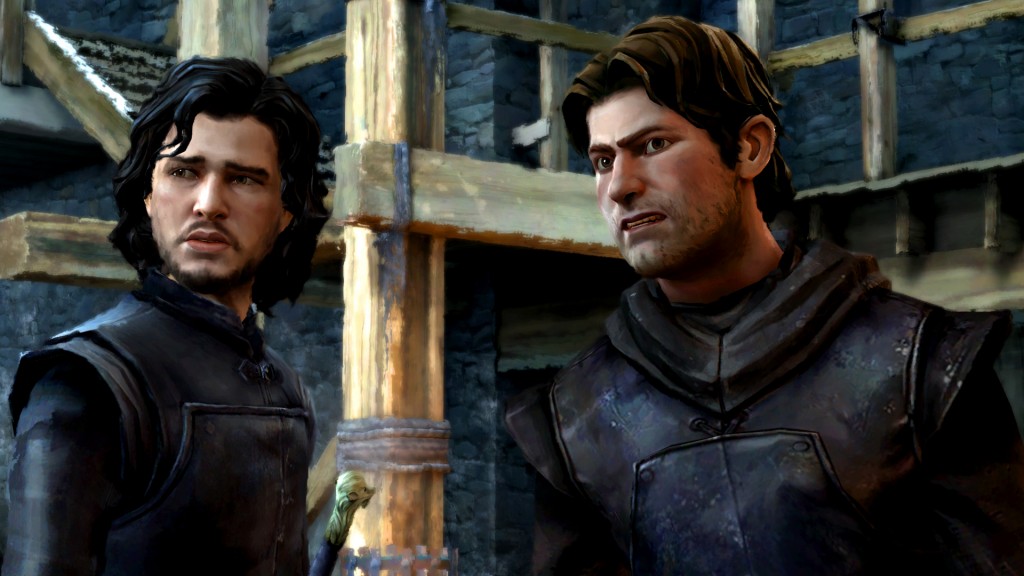
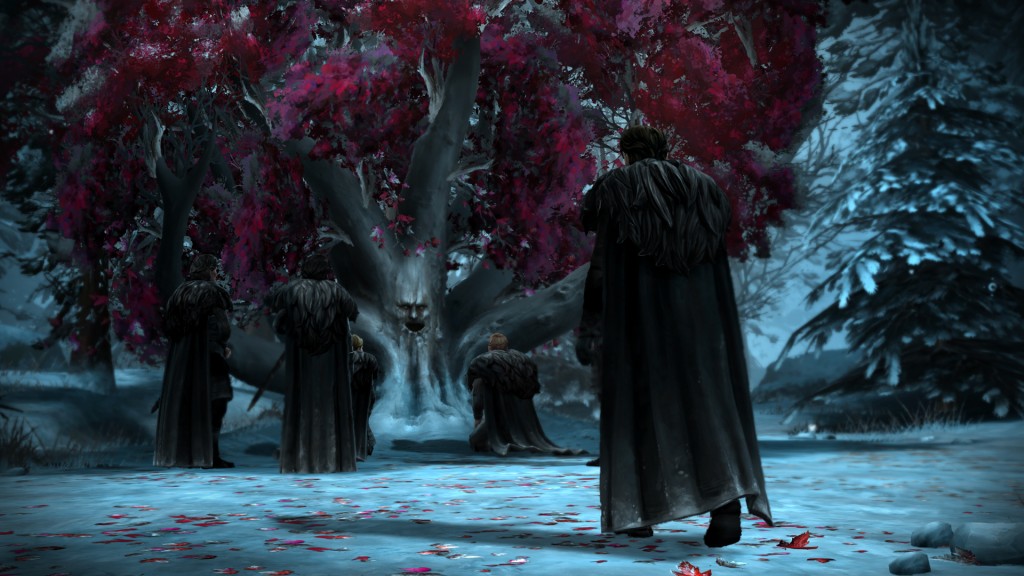
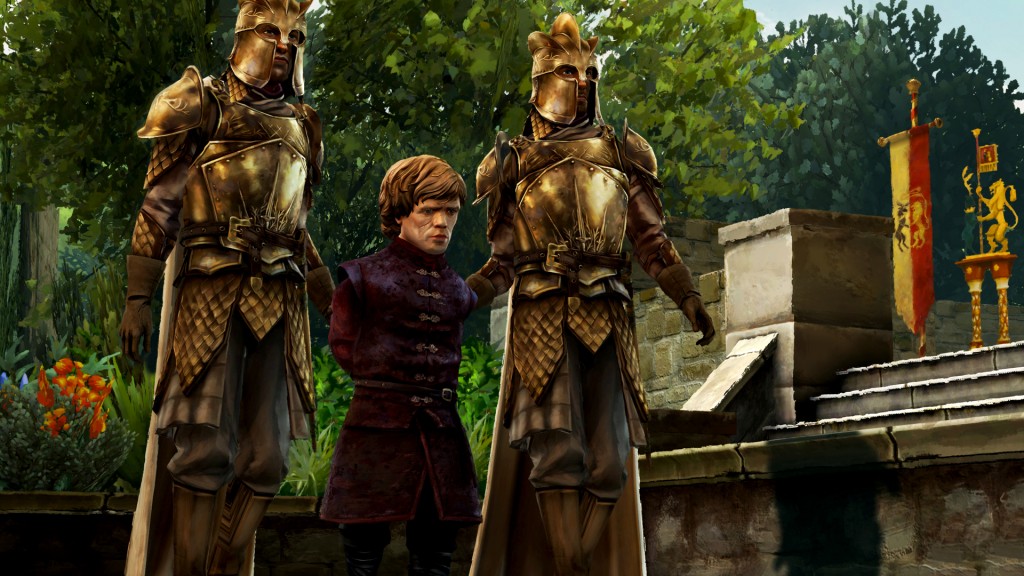
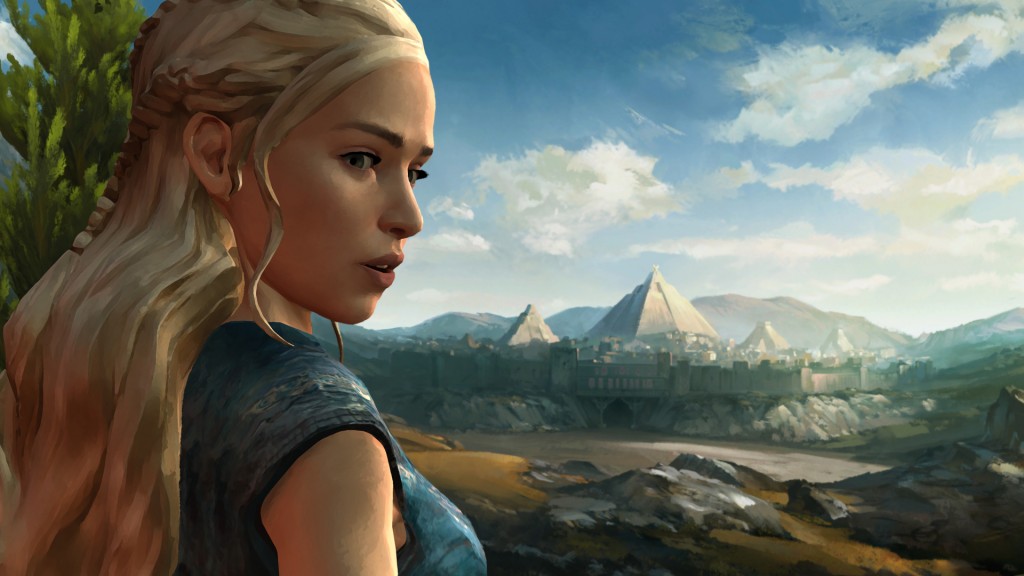
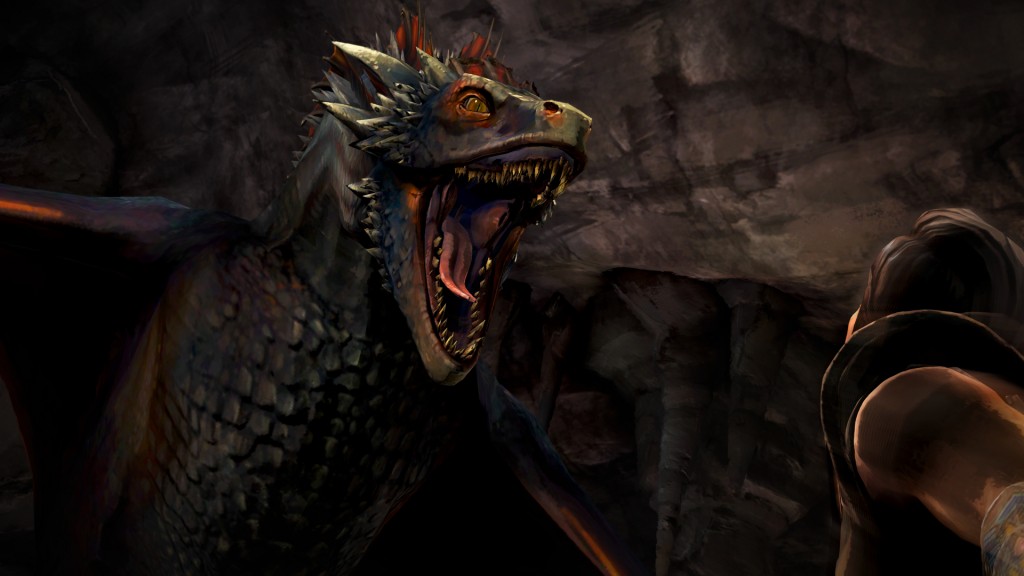







You must be logged in to post a comment.